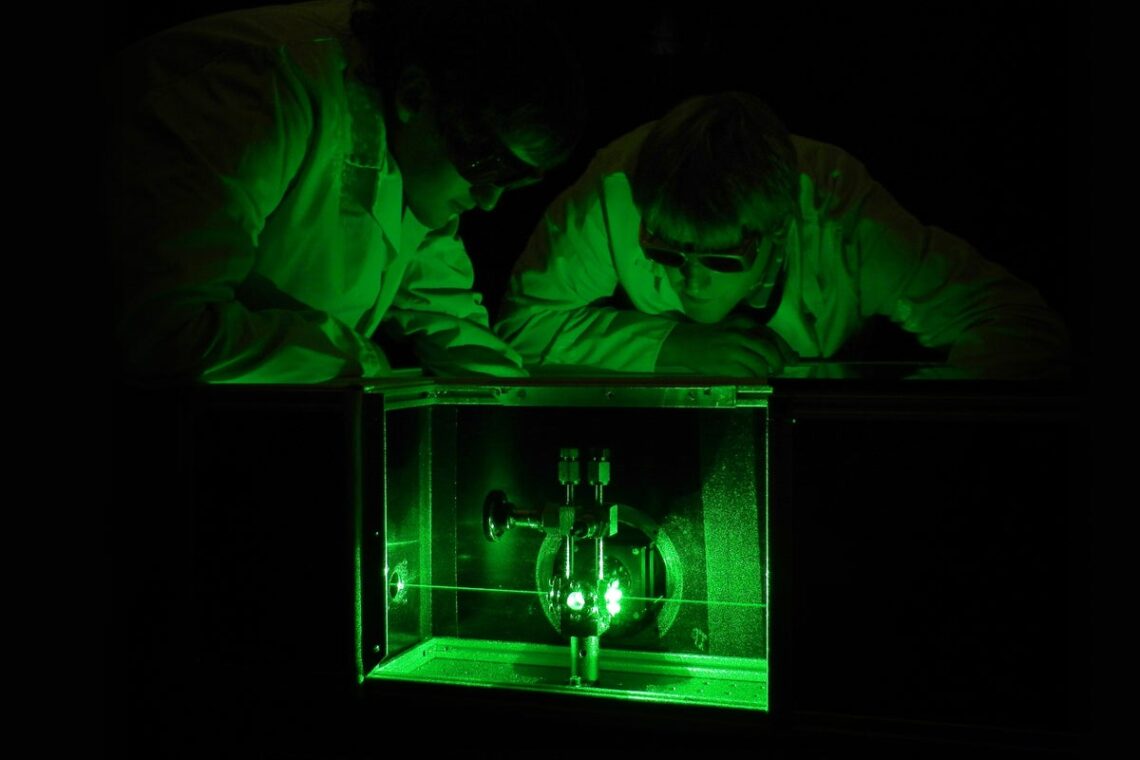Physicists Are Closer Than Ever to Solving the Puzzle of the Ghostly Neutrino’s Mass
In just the first 259 days of data collection, KATRIN, a beta-decay-based detector in Germany, has set the smallest upper limit yet on the mass of the neutrino—the universe’s lightest massive particle
Laser Raman system for the analysis of the tritium gas composition in the WGTS.
The neutrino is a notorious troublemaker in the world of particle physics. This tiny, elusive particle with no electric charge likely permeates every corner of the universe, but you’d be hard-pressed to know that without extremely specialized instruments. Trillions pass through you every second, in fact, all without interacting with a single atom of your body. That is but one of the reasons why, for something so supposedly abundant and fundamental, we know painfully little about the neutrino—not even something so basic as its mass.
But neutrino physics might be on the verge of an experimental breakthrough: physicists with the Karlsruhe Tritium Neutrino (KATRIN) experiment in Germany have succeeded in measuring the upper limit of the neutrino’s mass to a mere 0.45 electron volts (eV), which is less than one millionth of the mass of an electron. These results, published last week in Science, represent just a fraction of KATRIN’s investigations; about three quarters of the detector’s planned data haul from its ongoing 1,000-day campaign remains to be analyzed and revealed.
Another reason for excitement is that KATRIN has achieved a twofold increase in sensitivity from just last year, when some researchers raised questions as to whether the experiment would even be able to make progress on physicists’ decades-long quest to gauge the neutrino’s mass. And the KATRIN team intends to push the detector even further, says Alexey Lokhov, a co-author of the new study and an experimental physicist at Karlsruhe Institute of Technology in Germany. By the conclusion…
Read the full article here

